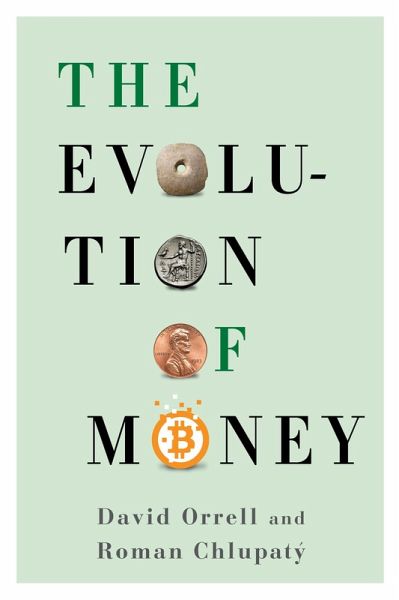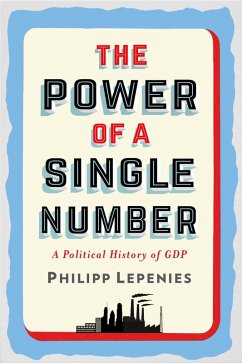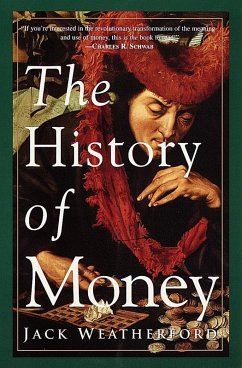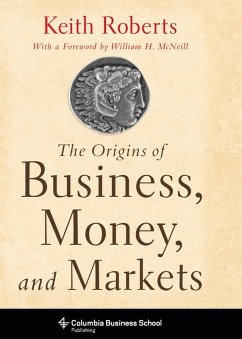
The Evolution of Money (eBook, ePUB)

PAYBACK Punkte
14 °P sammeln!
The sharing economy's unique customer-to-company exchange is possible because of the way in which money has evolved. These transactions have not always been as fluid as they are today, and they are likely to become even more fluid. It is therefore critical that we learn to appreciate money's elastic nature as deeply as do Uber, Airbnb, Kickstarter, and other innovators, and that we understand money's transition from hard currencies to cryptocurrencies like Bitcoin if we are to access their cooperative potential.The Evolution of Money illuminates this fascinating reality, focusing on the tensio...
The sharing economy's unique customer-to-company exchange is possible because of the way in which money has evolved. These transactions have not always been as fluid as they are today, and they are likely to become even more fluid. It is therefore critical that we learn to appreciate money's elastic nature as deeply as do Uber, Airbnb, Kickstarter, and other innovators, and that we understand money's transition from hard currencies to cryptocurrencies like Bitcoin if we are to access their cooperative potential.
The Evolution of Money illuminates this fascinating reality, focusing on the tension between currency's real and abstract properties and advancing a vital theory of money rooted in this dual exchange. It begins with the debt tablets of Mesopotamia and follows with the development of coin money in ancient Greece and Rome, gold-backed currencies in medieval Europe, and monetary economics in Victorian England. The book ends in the digital era, with the cryptocurrencies and service providers that are making the most of money's virtual side and that suggest a tectonic shift in what we call money. By building this organic time line, The Evolution of Money helps us anticipate money's next, transformative role.
The Evolution of Money illuminates this fascinating reality, focusing on the tension between currency's real and abstract properties and advancing a vital theory of money rooted in this dual exchange. It begins with the debt tablets of Mesopotamia and follows with the development of coin money in ancient Greece and Rome, gold-backed currencies in medieval Europe, and monetary economics in Victorian England. The book ends in the digital era, with the cryptocurrencies and service providers that are making the most of money's virtual side and that suggest a tectonic shift in what we call money. By building this organic time line, The Evolution of Money helps us anticipate money's next, transformative role.
Dieser Download kann aus rechtlichen Gründen nur mit Rechnungsadresse in A, D ausgeliefert werden.












